25 Pros and Cons of being a Flight Attendant
If you’re considering a career as a flight attendant, you might be wondering whether it would be the right fit for you. It’s a great job, but it’s not for everyone. Before you invest your time and money, You need to make sure you’re aware of all the advantages and pitfalls, and there are many! In this blog, we’ll explore the pros and cons of being a flight attendant so you can make an informed decision.
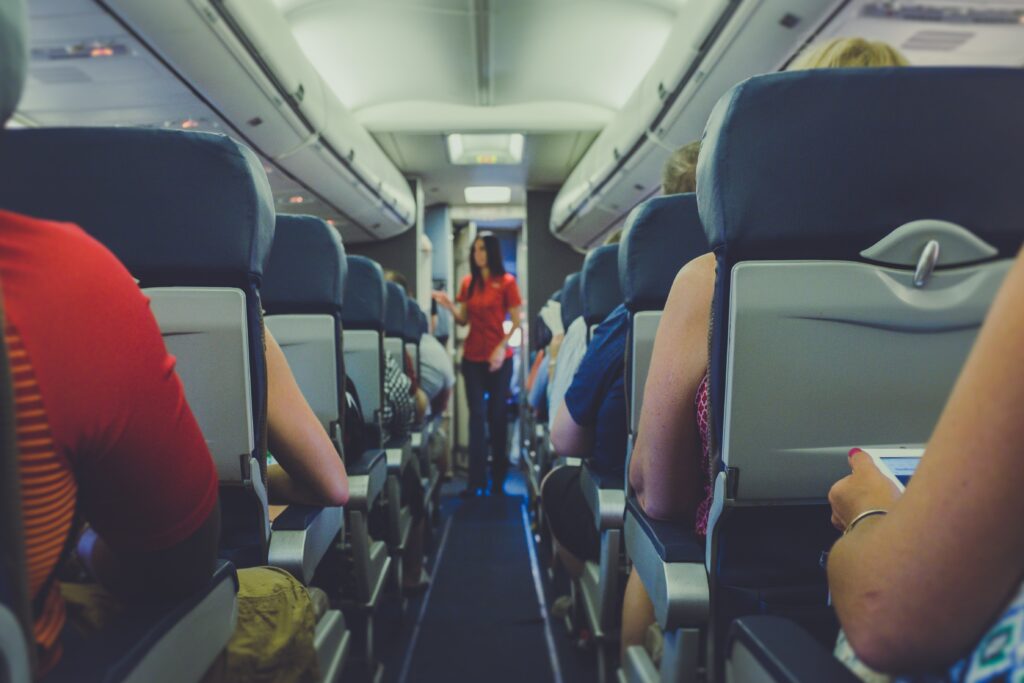
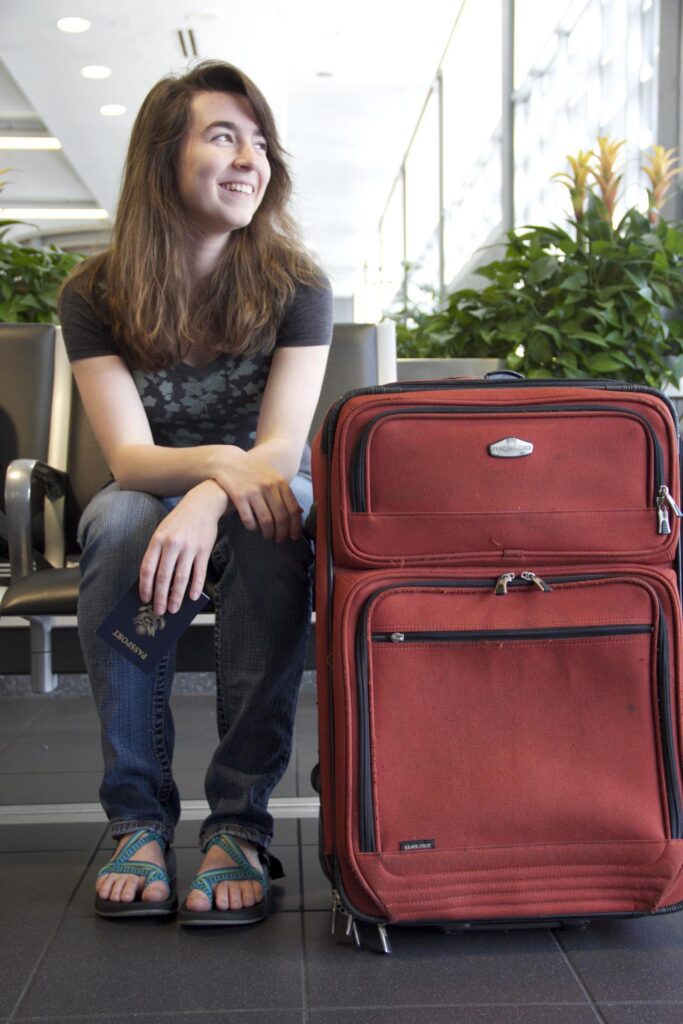



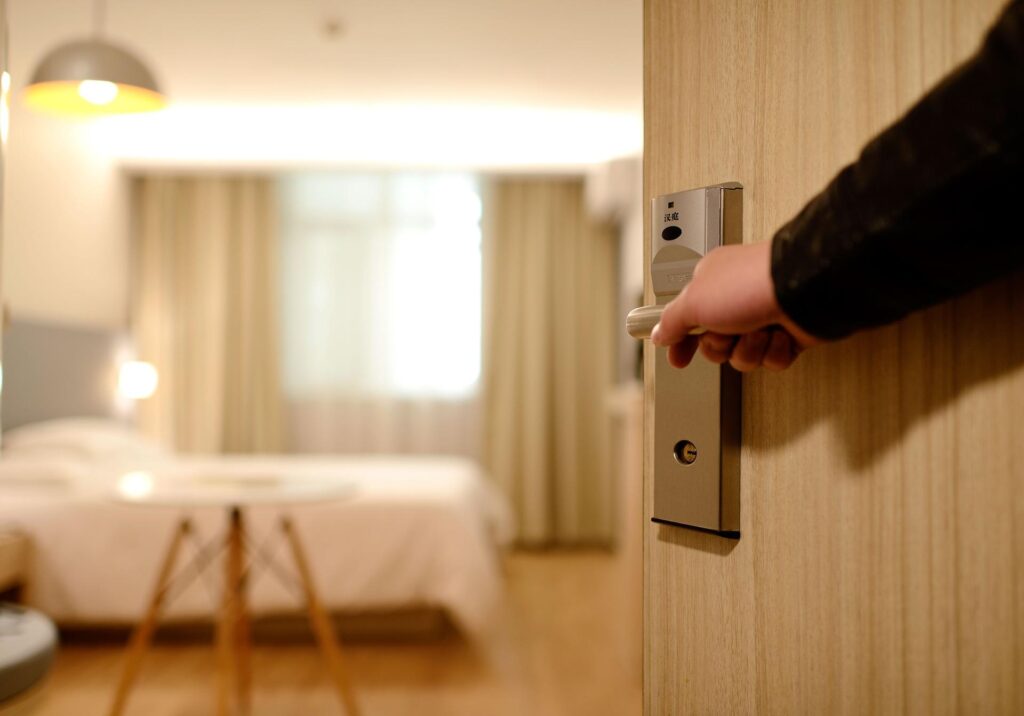


Work Travel
Your job gives you the opportunity to travel to different destinations. Your airline will pay for your hotel and you may get a small amount of pay for your down time if you have a layover!
Flying Standby
As an employee of the airline, you get free or discounted airfares to anywhere the airline flies. This discount is offered by pretty much all airlines. Sometimes it may also cover your family and friends as well.









Work Travel
Your job gives you the opportunity to travel to different destinations. Your airline will pay for your hotel and you may get a small amount of pay for your down time if you have a layover!
Flying Standby
As an employee of the airline, you get free or discounted airfares to anywhere the airline flies. This discount is offered by pretty much all airlines. Sometimes it may also cover your family and friends as well.
You’ll Learn Social Skills
You’ll be meeting between 200 and 500 passengers per flight. And on each flight you’ll be working with a different group of flight attendants. So you’ll have to learn to easily talk to passengers and fellow crew members.
To get through the strange and unpredictable situations that you may run into. You’ll need to be able to listen, communicate effectively. And be assertive while still being pleasant.














You Can Create Your Own Lifestyle
If you like the idea of seeing distant cities or exotic destinations. Then you probably would like having layovers.
That’s where you fly to a distant destination. Then you stay there overnight or longer, before you fly back.
Having time between incoming and outgoing flights would allow you to tour your destination. If this is you, think about applying at an international airline (American, Delta, etc.…) or a charter carrier.
If you’re looking to stay close to home as much as possible, then you’re looking for day trips. You should apply to regional airlines
But even if you’re working for an international airline. And you’re looking to be home as much as possible, you can bid on day trips.
You can even swap flights between flight attendants. As long as you inform management about the change.












You Can Create Your Own Lifestyle
If you like the idea of seeing distant cities or exotic destinations. Then you probably would like having layovers.
That’s where you fly to a distant destination. Then you stay there overnight or longer, before you fly back.
Having time between incoming and outgoing flights would allow you to tour your destination. If this is you, think about applying at an international airline (American, Delta, etc.…) or a charter carrier.
If you’re looking to stay close to home as much as possible, then you’re looking for day trips. You should apply to regional airlines
But even if you’re working for an international airline. And you’re looking to be home as much as possible, you can bid on day trips.
You can even swap flights between flight attendants. As long as you inform management about the change.
You’ll Never Be Board
Two flights are never the same. There will always be something happening that will make your day interesting.
Indoor work environment
In the plane and in the airport, you’ll be working in a temperature controlled environment. You’ll be able to avoid the extremes of the winter cold and the summer heat. And the chances of getting injured is low but not zero.
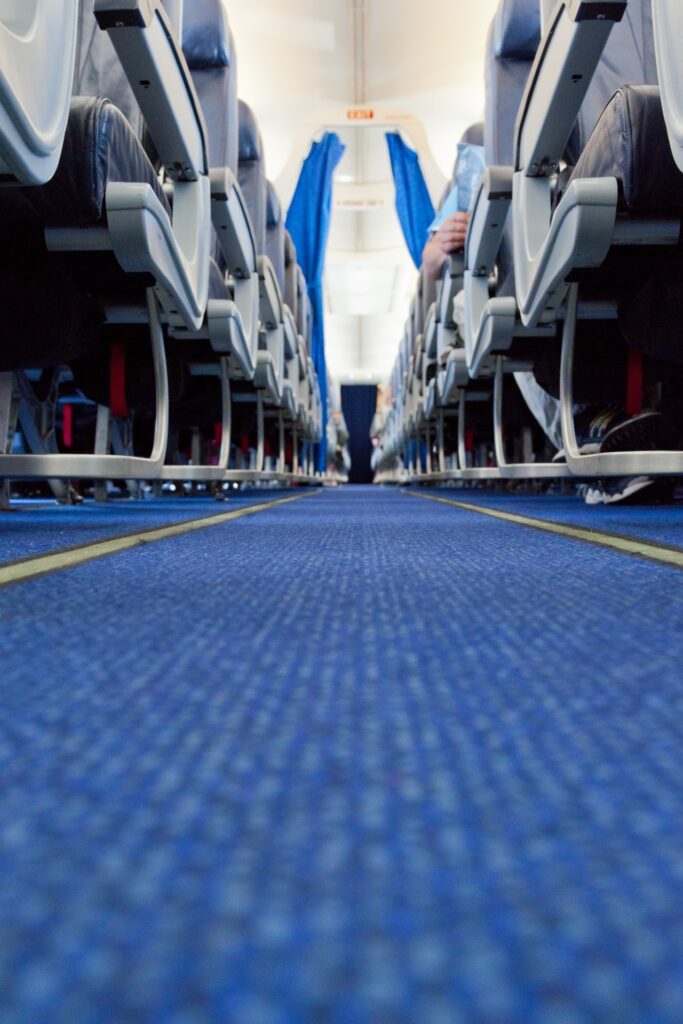


Free Meals
While you’re on duty, you’ll eat onboard the plane for free. This is a double edge sword. Because the food on the plane may not be the healthiest.
If you’re working a flight that takes 2, 3, or more days. Airlines often give food vouchers when you are on layovers.
You’ll Never Be Board
Two flights are never the same. There will always be something happening that will make your day interesting.
Indoor work environment
In the plane and in the airport, you’ll be working in a temperature controlled environment. You’ll be able to avoid the extremes of the winter cold and the summer heat. And the chances of getting injured is low but not zero.
Free Meals
While you’re on duty, you’ll eat onboard the plane for free. This is a double edge sword. Because the food on the plane may not be the healthiest.
If you’re working a flight that takes 2, 3, or more days. Airlines often give food vouchers when you are on layovers.






















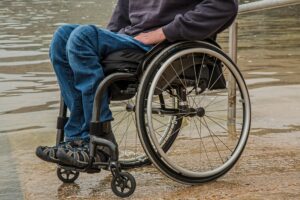






You Get Great Benefits
Employee Benefits
- Health insurance
- Life insurance
- Disability insurance
- retirement plan
- travel benefits
Airline Benefits
Airline crews can get a lot of discount coupons for shops, hotels, car rentals, dental services and fitness and beauty centers.














You Get Great Benefits
Employee Benefits
- Health insurance
- Life insurance
- Disability insurance
- retirement plan
- travel benefits
Airline Benefits
Airline crews can get a lot of discount coupons for shops, hotels, car rentals, dental services and fitness and beauty centers.
The job outlook for the next ten years looks much better than average.
The job outlook for flight attendants is very strong. According to the U.S. BUREAU OF LABOR STATISTICS. The estimated growth in the field, out to 2031 will be a 21% increase in jobs. Which is a much faster increase than average!
This translates to an increase of 22,100 jobs from 2021 to 2031.
Over the decade there should be about 18,100 openings for flight attendants on average each year. That includes new openings and openings to replace workers who quit or retire.
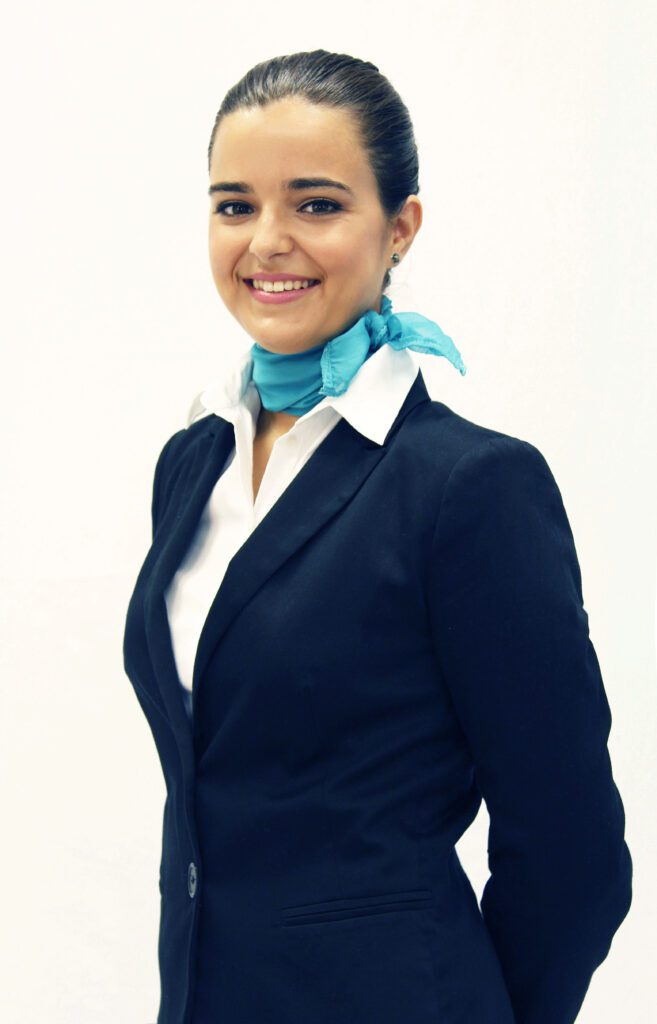


Upward Mobility
During your career, you can work your way up to lead flight attendant. Then you could have the opportunity to go into management.
Where you could become a supervisor, interviewer or a teacher of new-hire flight attendants. You may also be able to get a union position.
The job outlook for the next ten years looks much better than average.
The job outlook for flight attendants is very strong. According to the U.S. BUREAU OF LABOR STATISTICS. The estimated growth in the field, out to 2031 will be a 21% increase in jobs. Which is a much faster increase than average!
This translates to an increase of 22,100 jobs from 2021 to 2031.
Over the decade there should be about 18,100 openings for flight attendants on average each year. That includes new openings and openings to replace workers who quit or retire.
Upward Mobility
During your career, you can work your way up to lead flight attendant. Then you could have the opportunity to go into management.
Where you could become a supervisor, interviewer or a teacher of new-hire flight attendants. You may also be able to get a union position.





Starting Salaries can be Low
Starting salaries for most airlines seem to hover around $30,000 per year. This number does not include other benefits a flight attendant might get. Such as free travel and discount coupons. See ‘Airline Benefits’ above.
You Could Spend a Lot of Time Commuting
If the base airport you were hoping for isn’t available, you have two choices.
1) to move close to your base airport or
2) commute to work every day
Yes, you could use the free flight option to get to work every day. But remember, it’s stand buy. You’re not guaranteed to get to your destination at any specific time. And it’s your responsibility to be on time every day.
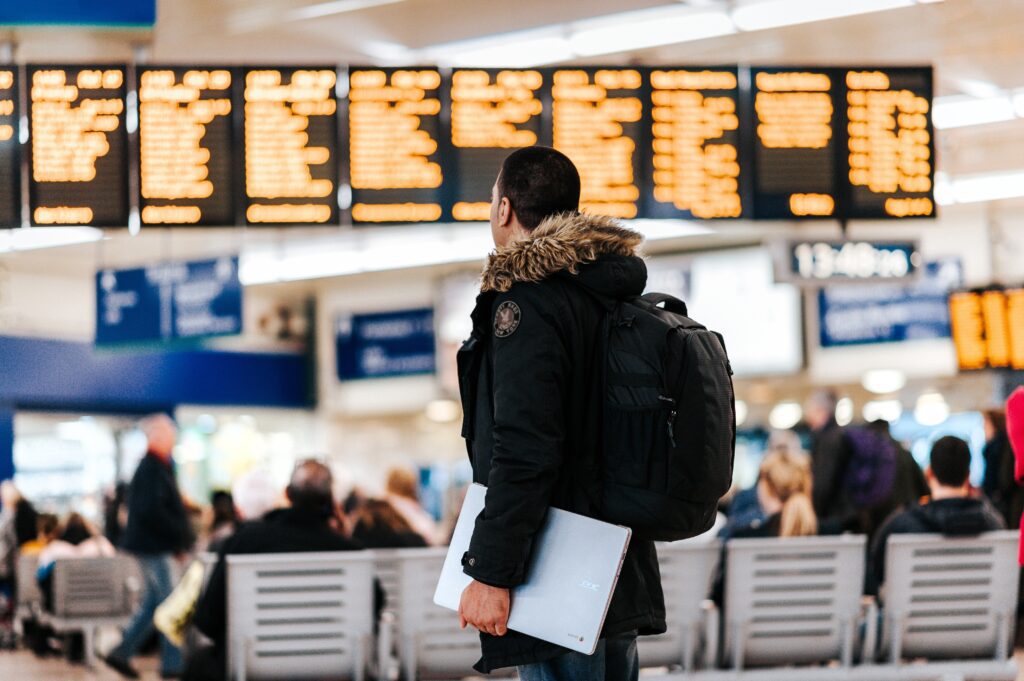

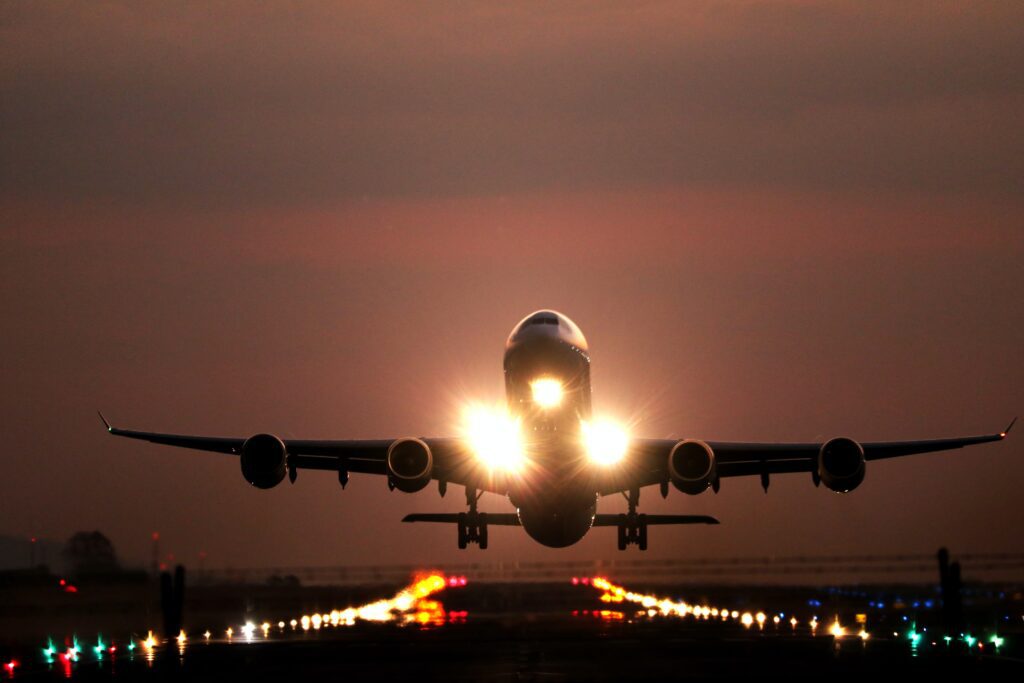


When You First Get Hired, You’re Always On Call or on Reserve
Your schedule is never 9 to 5 and you go home.
Different airlines have a different term they use. Some call it ‘reserve’, others call it ‘stand buy’, it’s all the same, you’re ‘on call’.
When you’re a new hire, you’ll be on call all the time. So much so, that you’ll have to keep an overnight bag packed at all times.
So the airline can call you any time, day or night, and it’s your obligation to cover those shifts.
Because it’s a last minute thing, you don’t know where you’ll be going, or how long you’ll be gone. But because you’re most likely a new hire, you’ll probably be home that night. (new hires rarely get long haul / overnight flights)



When You First Get Hired, You’re Always On Call or on Reserve
Your schedule is never 9 to 5 and you go home.
Different airlines have a different term they use. Some call it ‘reserve’, others call it ‘stand buy’, it’s all the same, you’re ‘on call’.
When you’re a new hire, you’ll be on call all the time. So much so, that you’ll have to keep an overnight bag packed at all times.
So the airline can call you any time, day or night, and it’s your obligation to cover those shifts.
Because it’s a last minute thing, you don’t know where you’ll be going, or how long you’ll be gone. But because you’re most likely a new hire, you’ll probably be home that night. (new hires rarely get long haul / overnight flights)
You’ll be Away From Home a Lot
You’ll miss important events like birthdays, holidays, weddings, and family BBQs.
The best flights go to the people with the most seniority. So even the flight attendants who have been around for a while. Have a hard time getting the flights they want all the time. So if you have commitments like a pet or a child, you need a really reliable back up plan.








It's Hard to Have Relationships
Again, You’ll miss important events like birthdays, holidays, weddings, and family BBQs.
You won’t be able to tell when you’ll be home. And when you are home, you may be exhausted from the 12 hour shift you just worked.
Under those circumstances, it is very difficult to have any meaningful relationships.
You’ll be Away From Home a Lot
You’ll miss important events like birthdays, holidays, weddings, and family BBQs.
The best flights go to the people with the most seniority. So even the flight attendants who have been around for a while. Have a hard time getting the flights they want all the time. So if you have commitments like a pet or a child, you need a really reliable back up plan.
It's Hard to Have Relationships
Again, You’ll miss important events like birthdays, holidays, weddings, and family BBQs.
You won’t be able to tell when you’ll be home. And when you are home, you may be exhausted from the 12 hour shift you just worked.
Under those circumstances, it is very difficult to have any meaningful relationships.














If There’s No One to Cover Your Shift, You May Not be Able to Take a Sick Day
If you call in sick, but there is no one to cover your shift. You are obligated to go in and work your shift.
Most airlines don’t want to put sick workers in with other crew members and passengers. But this may happen until you get enough seniority.
Time Zone Changes & Your Always Tired
This is dependent on the routes you fly and your schedule.
Time zone changes will affect everyone differently. But it can include fatigue, headaches, your ability to sleep, and your concentration.
If you know you’re going to fly across time zones. Ask other flight attendants for their advice. Then discuss it with your primary care physician to see if there is something you can do to reduce the effects.






If There’s No One to Cover Your Shift, You May Not be Able to Take a Sick Day
If you call in sick, but there is no one to cover your shift. You are obligated to go in and work your shift.
Most airlines don’t want to put sick workers in with other crew members and passengers. But this may happen until you get enough seniority.
Time Zone Changes & Your Always Tired
This is dependent on the routes you fly and your schedule.
Time zone changes will affect everyone differently. But it can include fatigue, headaches, your ability to sleep, and your concentration.
If you know you’re going to fly across time zones. Ask other flight attendants for their advice. Then discuss it with your primary care physician to see if there is something you can do to reduce the effects.
Irate Passengers
Passengers can be great, but recently some passengers have begun to be violent. As a flight attendant, you could become a target.
During training you’ll be taught to handle difficult passengers. And when you come across one, you and your fellow crew mates need to act as a team to defuse the situation.
The FAA has implemented a Zero Tolerance policy.
According to the FAA, the policy has helped reduce the incident rate by 60%.


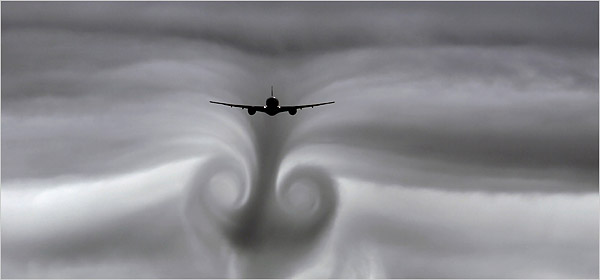

Turbulence
If you know turbulence is coming, you need to sit down and ride it out. Getting a passenger a coke isn’t that important.
You can’t see turbulence, but pilots in other planes can warn your plane of turbulence they ran into, which helps. But this doesn’t always happen, so you can easily get injured during turbulence.
Flight Delays
There is always a chance you will experience travel delays. Delays will impact the length of your shift, how long it takes to get to your destination, and your schedule going forward. Flight delays are part of life in this industry. So it’s unlikely that a change in your schedule will lead to disciplinary action.
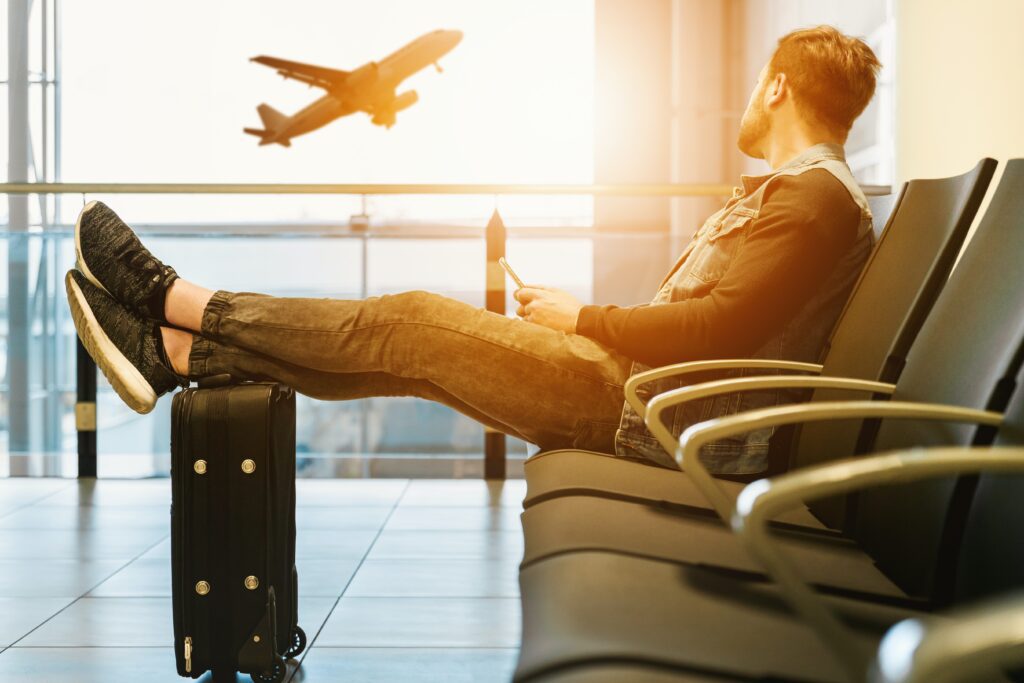

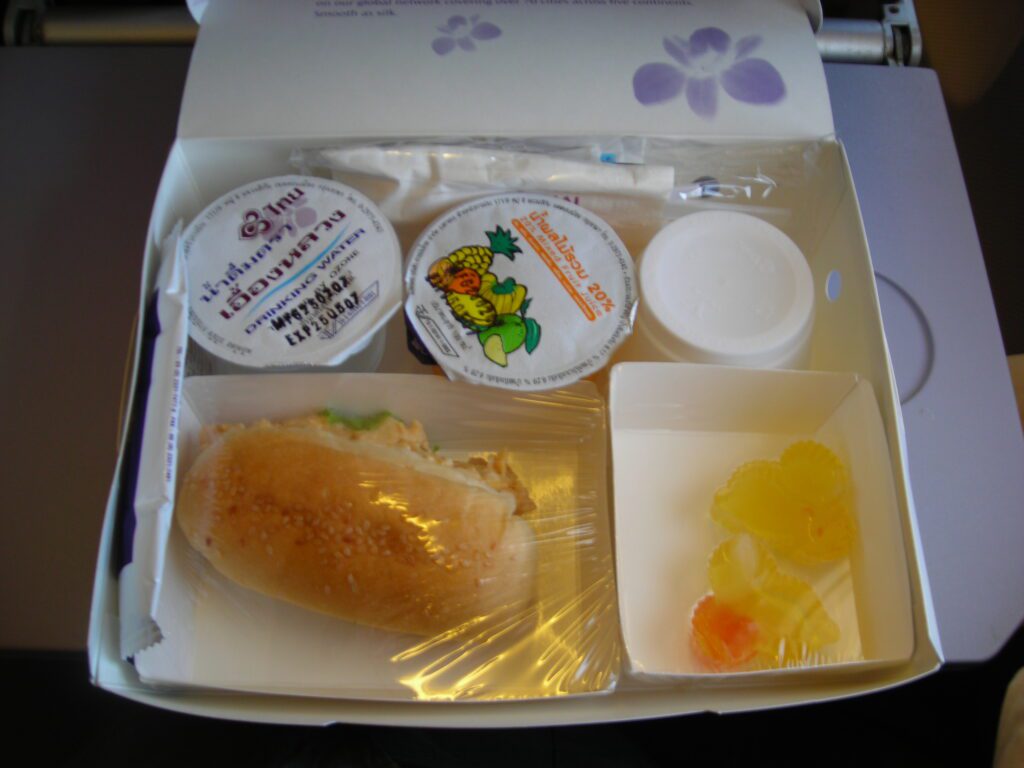

Because You Eat on the Plane, You get into Bad Eating Habits
Yes, you will never have to pay for lunch at work. But the food served on the plane isn’t exactly healthy. The meals are prepared about 12 to 24 hours beforehand. So they are never fresh. They also contain a lot of salt and preservatives. If you eat airline food at work and combine it with fast food outside of work, and the lack of sleep. You have a bad combination that will increase your weight and impact your general health.
Try to pack your own meals and snacks, if you can. It will help keep your weight down and improve your overall health.
Pros and Cons of being a Male Flight Attendant
Times have changed since the 1980s. Back then if you were a male flight attendant you would receive a lot of static from the people you worked with. But today, It’s not unusual to see a male flight attendant.
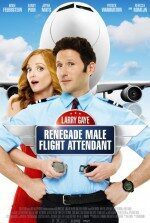

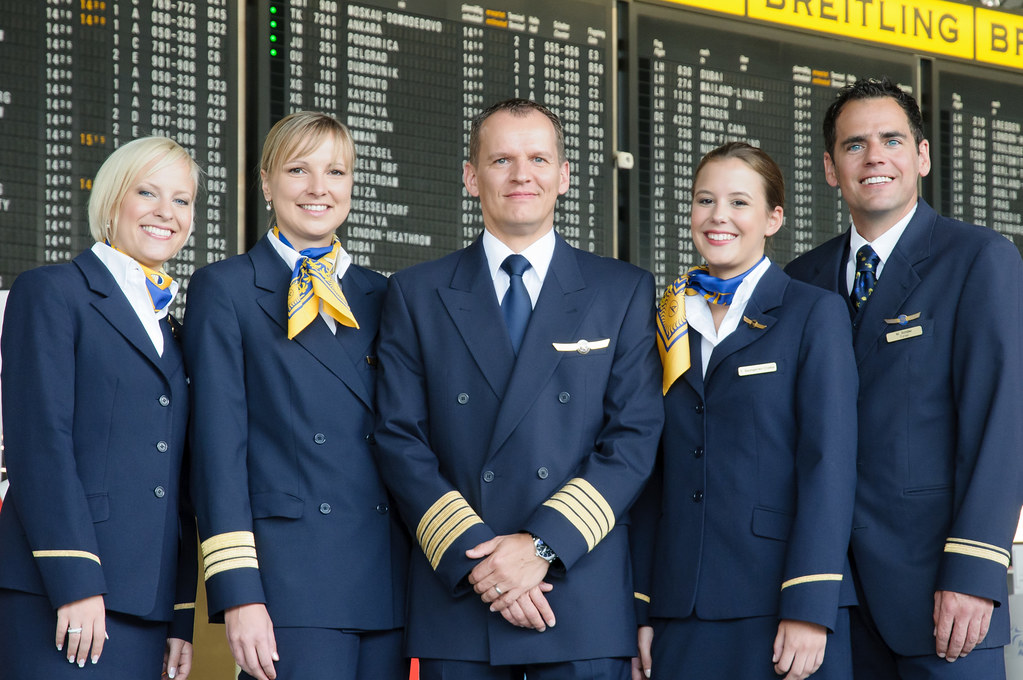

Pros of being a Male Flight Attendant
All the advantages that are mentioned above relate to being a male attendant.
- Also, you get to work with a lot of very nice and attractive women.
- And if you’re a straight single guy, you’ll have a large pool to pick from.
- And if your gay, you won’t be the only one.
Cons of being a Male Flight Attendant
- Even though times have changed, you’ll still receive some unwanted comments.
- I believe the majority will be coming from the passengers, not the crew.
Are You Ready to Become a Flight Attendant?
Still wondering how to become a flight attendant?
Then check out our post: How To Become A Flight Attendant – The Ultimate Guide!
Or you can check out the next post in the series, What do Flight Attendants do? – A day in the life of a flight attendant. Where we take you through a typical day of a flight attendant!
Frequently Asked Questions
Requirements regarding height and weight vary among airlines.
Generally, if you’re above 5 feet 2 ½ inches or 159cm, it shouldn’t be a problem. The height restriction has to do with safety, you need to be able to reach safety equipment on the plane in case there is an emergency.
See this article for more information on the physical, hair & tattoo requirements.
Airlines DO NOT have a set weight an applicant needs to be. The FAA has safety rules that determine what you need to be able to do. Such as fitting into a jump seat with a seat belt on, lifting luggage into the overhead bins.
See this article for tips to handle a weight issue.
Requirements regarding height and weight vary among airlines.
Generally, if you’re above 5 feet 2 ½ inches or 159cm, it shouldn’t be a problem. The height restriction has to do with safety, you need to be able to reach safety equipment on the plane in case there is an emergency.
See this article for more information on the physical, hair & tattoo requirements.
Airlines DO NOT have a set weight an applicant needs to be. The FAA has safety rules that determine what you need to be able to do. Such as fitting into a jump seat with a seat belt on, lifting luggage into the overhead bins.
See this article for tips to handle a weight issue.
Requirements regarding height and weight vary among airlines.
Generally, if you’re above 5 feet 2 ½ inches or 159cm, it shouldn’t be a problem. The height restriction has to do with safety, you need to be able to reach safety equipment on the plane in case there is an emergency.
See this article for more information on the physical, hair & tattoo requirements.
Airlines DO NOT have a set weight an applicant needs to be. The FAA has safety rules that determine what you need to be able to do. Such as fitting into a jump seat with a seat belt on, lifting luggage into the overhead bins.
See this article for tips to handle a weight issue.
Requirements regarding height and weight vary among airlines.
Generally, if you’re above 5 feet 2 ½ inches or 159cm, it shouldn’t be a problem. The height restriction has to do with safety, you need to be able to reach safety equipment on the plane in case there is an emergency.
See this article for more information on the physical, hair & tattoo requirements.
Airlines DO NOT have a set weight an applicant needs to be. The FAA has safety rules that determine what you need to be able to do. Such as fitting into a jump seat with a seat belt on, lifting luggage into the overhead bins.
See this article for tips to handle a weight issue.
Requirements regarding height and weight vary among airlines.
Generally, if you’re above 5 feet 2 ½ inches or 159cm, it shouldn’t be a problem. The height restriction has to do with safety, you need to be able to reach safety equipment on the plane in case there is an emergency.
See this article for more information on the physical, hair & tattoo requirements.
Airlines DO NOT have a set weight an applicant needs to be. The FAA has safety rules that determine what you need to be able to do. Such as fitting into a jump seat with a seat belt on, lifting luggage into the overhead bins.
See this article for tips to handle a weight issue.
Maximum age requirements vary. Some countries, in Asia and the Middle East allow specific age limits, usually around 30 years old, while others (U.S., Canada, Europe) consider factors like physical fitness and overall health, but do not have a maximum age requirement by law.
In the U.S. there is a MINIMUM age requirement that varies by airline. The minimum age starts as young as 18 years old, and as high as 21 years old.
See this article to get a listing of U.S. airlines with minimum age requirement.
See this article to see what you have to look out for if your an older applicant.
In the U.S., Canada and I believe in Europe, swimming is a requirement. If the airline you’re looking at is outside those western countries, check with the airline you’re applying to for their specific criteria.
See this article for more information on the physical, hair & tattoo requirements.
A high school diploma or equivalent should be considered as a minimum requirement in the U.S. Additional education, language proficiency, or a degree can increase your chances of being hired and give you a pay increase, but is not mandatory in the U.S. Each airline may have slightly different requirements.
See this article for more information on the physical, education, hair & tattoo requirements.
Flight attendants typically work 8-12 hour shifts, depending on the airline and the route. The exact number of hours a flight attendant works in a month can vary greatly depending on the airline, the route, and the individual’s schedule. Generally, flight attendants work an average of 75 to 80 hours per month.
Looking for more schedule information? Checkout this article!
Many airlines provide health benefits, including medical, dental, vision, and life insurance, as part of the employee package for flight attendants.
See this article for more information on Flight attendant pay and benefits.
There are two types of flight attendant schedules, reserve schedules, and fine holder schedules.
When you first start you will be on reserve (on call), so you’ll remain available 24 hours a day, so you won’t be able to choose your schedule.
Line holders bid for desired routes and can swap or drop trips. So the longer you work for the airline the more flexibility you’ll have in choosing your schedule.
Looking for more schedule information? Checkout this article!
Especially in the early stages of their careers, flight attendants may be required to work weekends and holidays. However, this can vary based on seniority, so the longer you work for the airline the more flexibility you’ll have in choosing your schedule.
Looking for more schedule information? Checkout this article!
While not strenuous, the role involves consistent physical activity, including walking through airports, attending to passengers, and ensuring the aircraft’s safety. In the U.S. the FAA has safety rules you need to be able to do.
See this article for more information on the physical, hair & tattoo requirements.
Assuming your resume is good enough to get you through the first cut. It can take an airline up to 6 months to get through the hiring process. Then you have to go through the 8 weeks or so of training.
See this article for more information on the flight attendant hiring process.
See this article for more information on flight attendant training.
A flight attendant needs to provide passengers with professional and efficient customer service. And at the same time, ensure passengers are provided the maximum level of safety and comfort.
Looking for more info, like a day in the life of a flight attendant? Check out this article!
Flight attendants make an average of $50,000 per year and enjoy a variety of benefits. These include free or discounted travel, flexible hours, and a variety of job opportunities. Flight attendants also receive medical and dental insurance, retirement plans, and paid vacation. They also have the opportunity to work in different countries and experience different cultures.
Looking for more info on a flight attendants salary and benefits? Check out this article!
No, a layover is not considered a day off for a flight attendant. Flight attendants typically work long hours and may have multiple layovers during their shifts. During a layover, flight attendants may have some free time, but they are still expected to be available to work if needed.